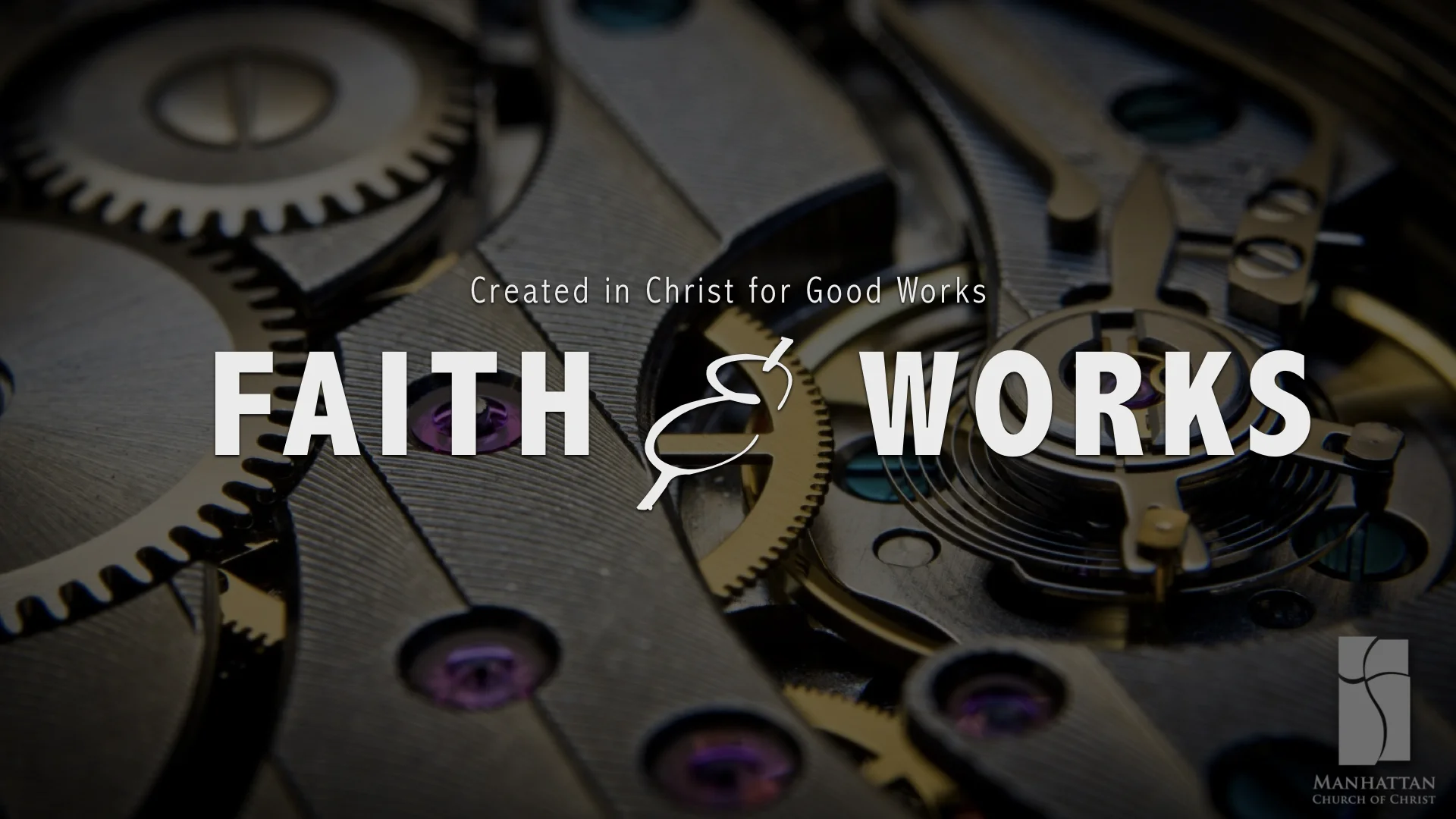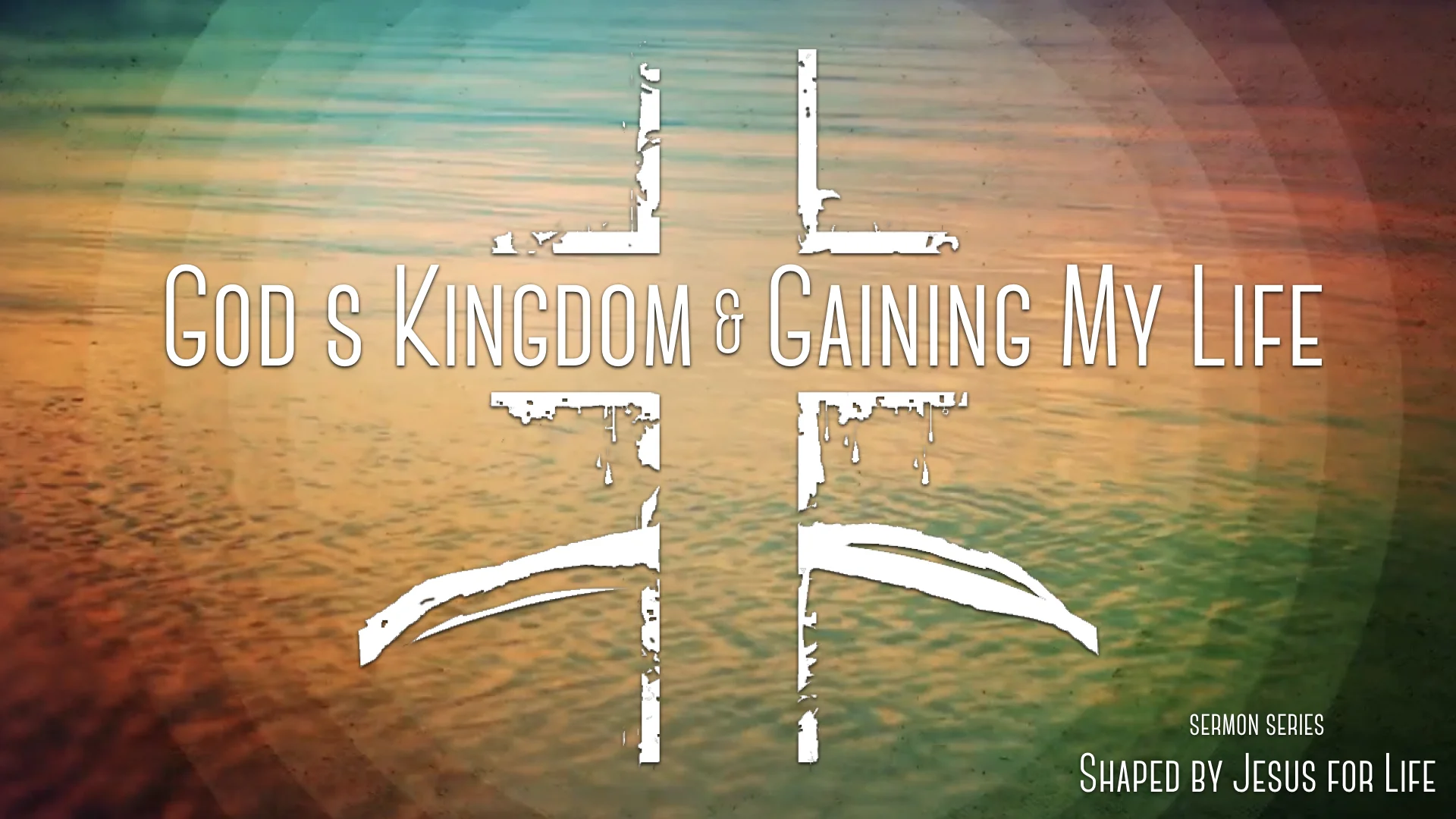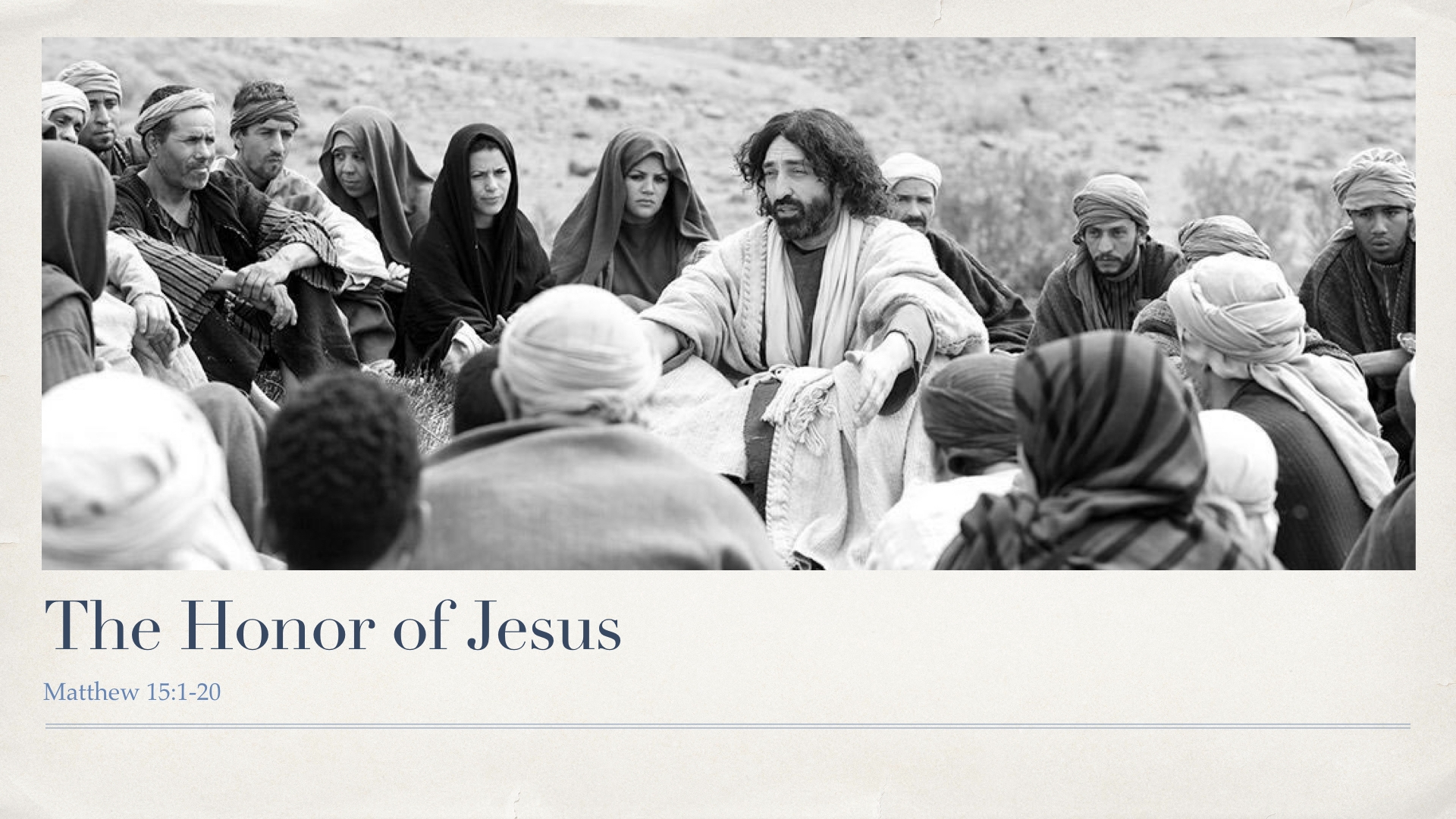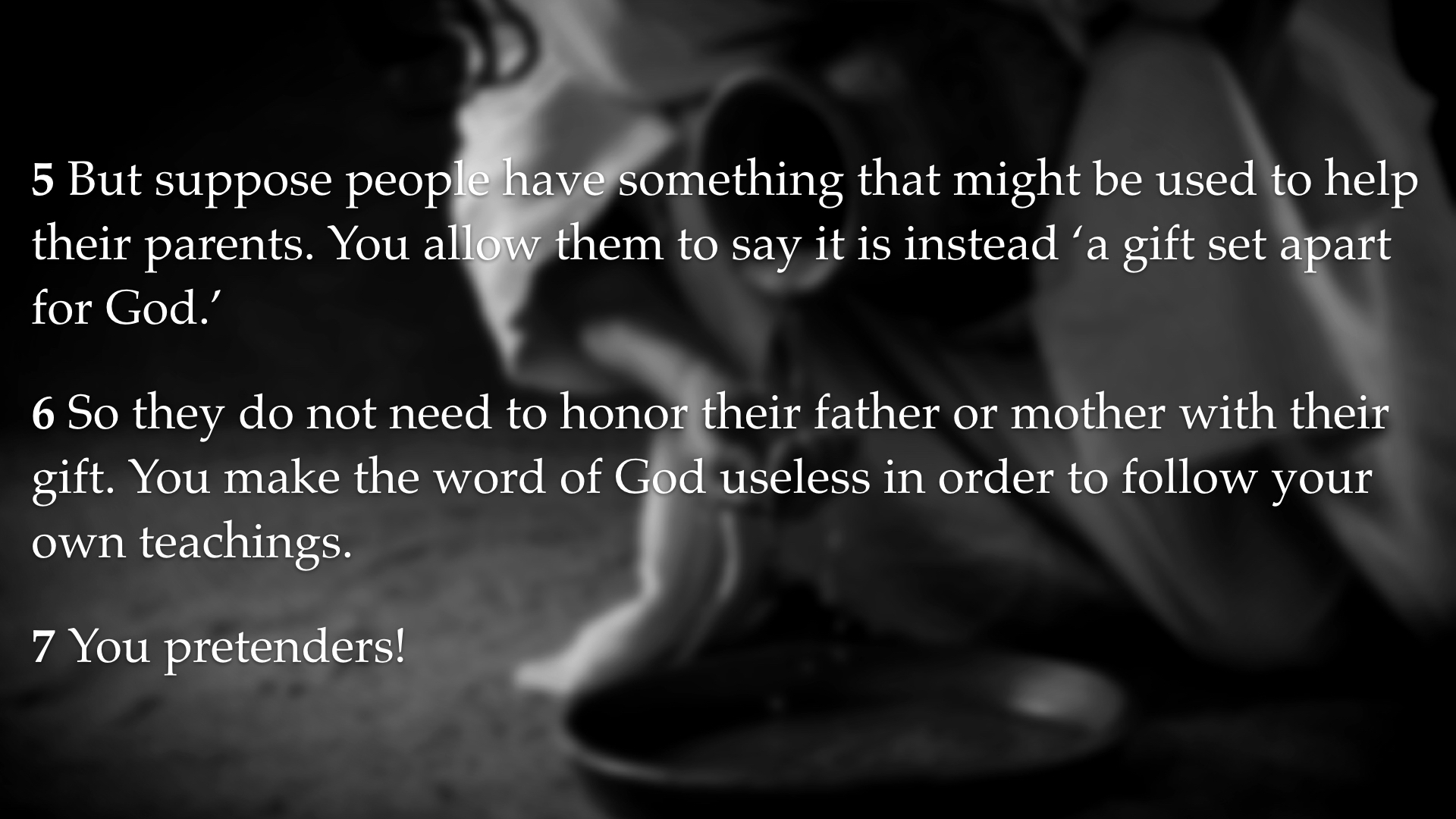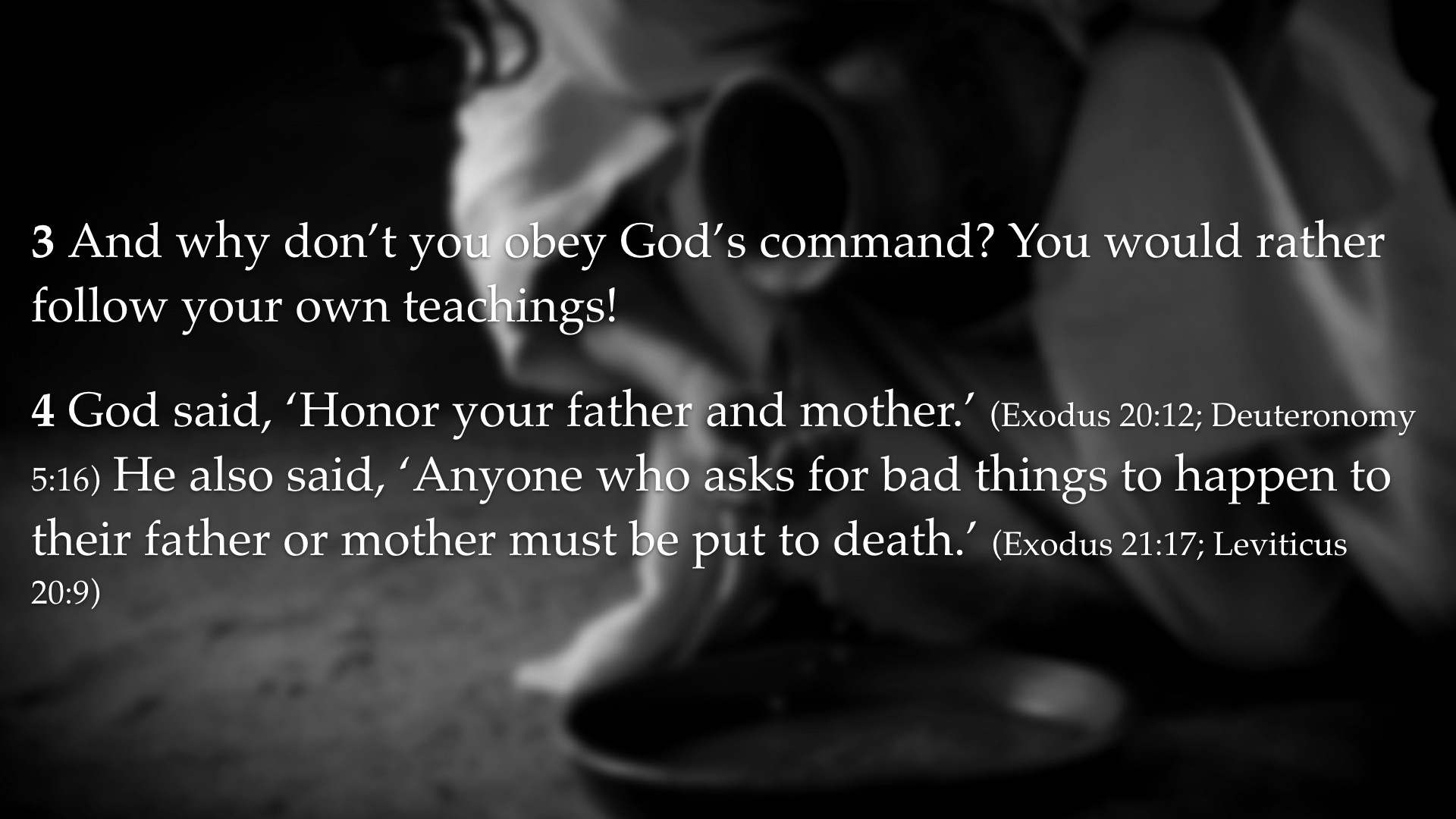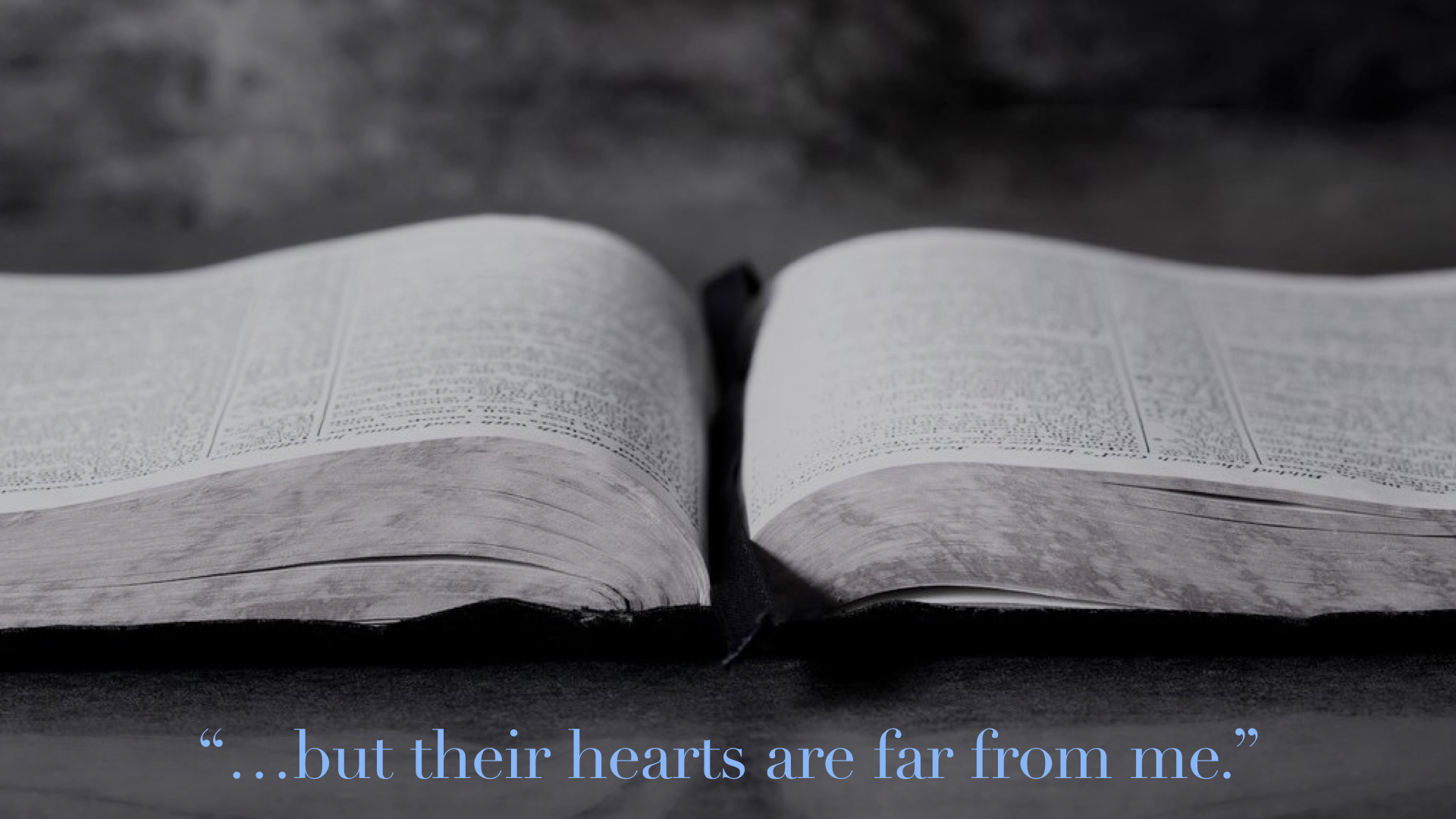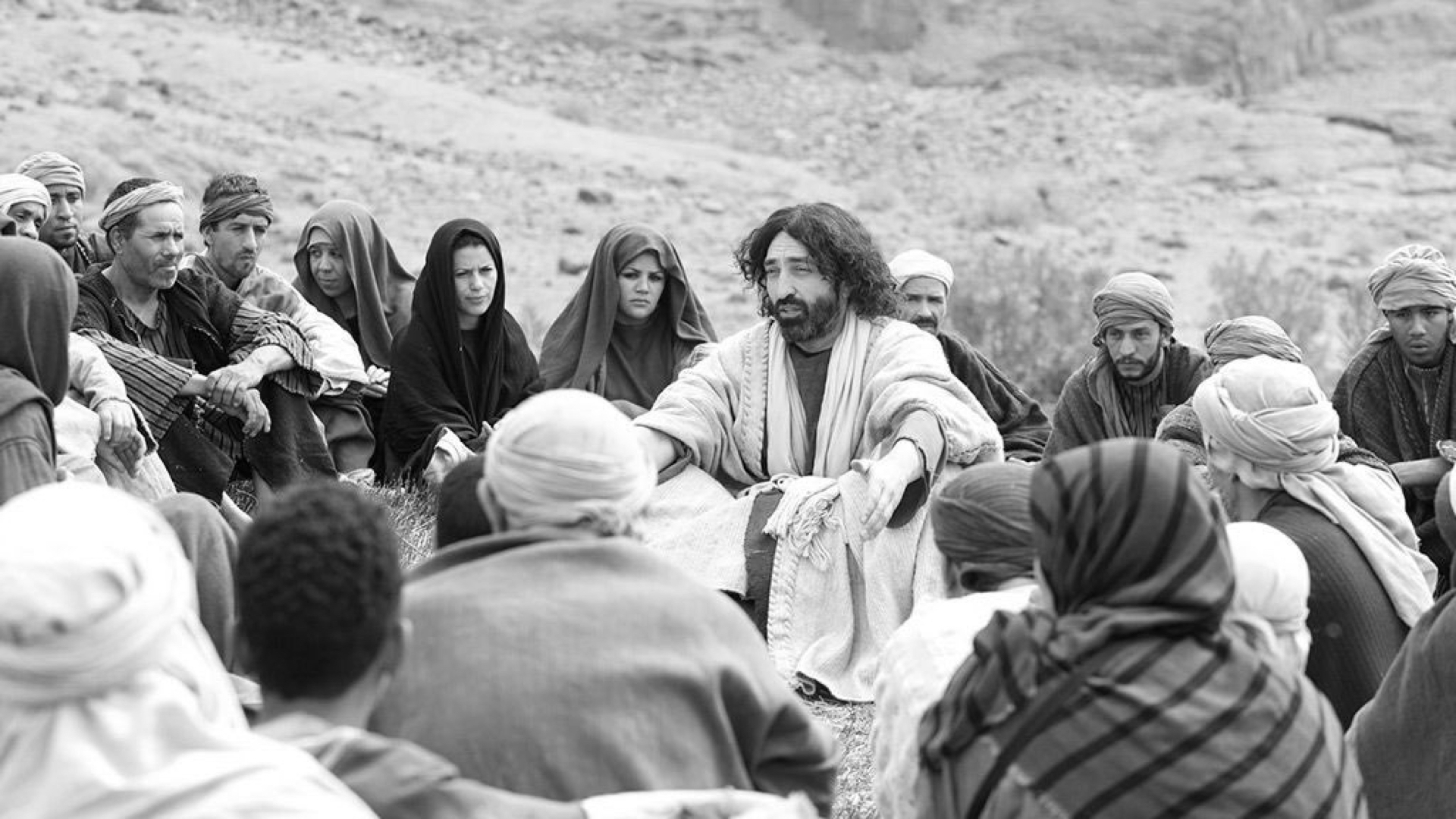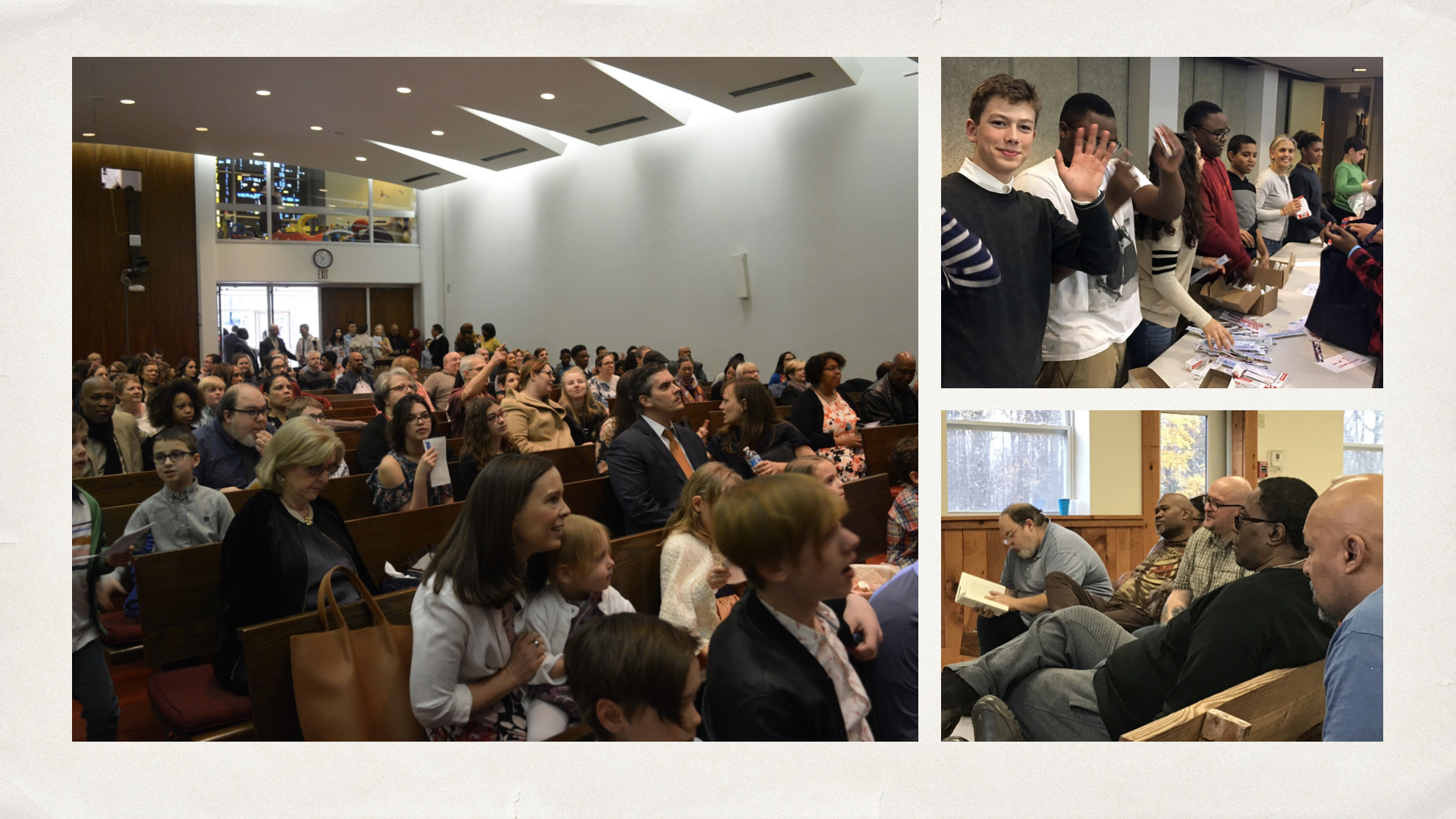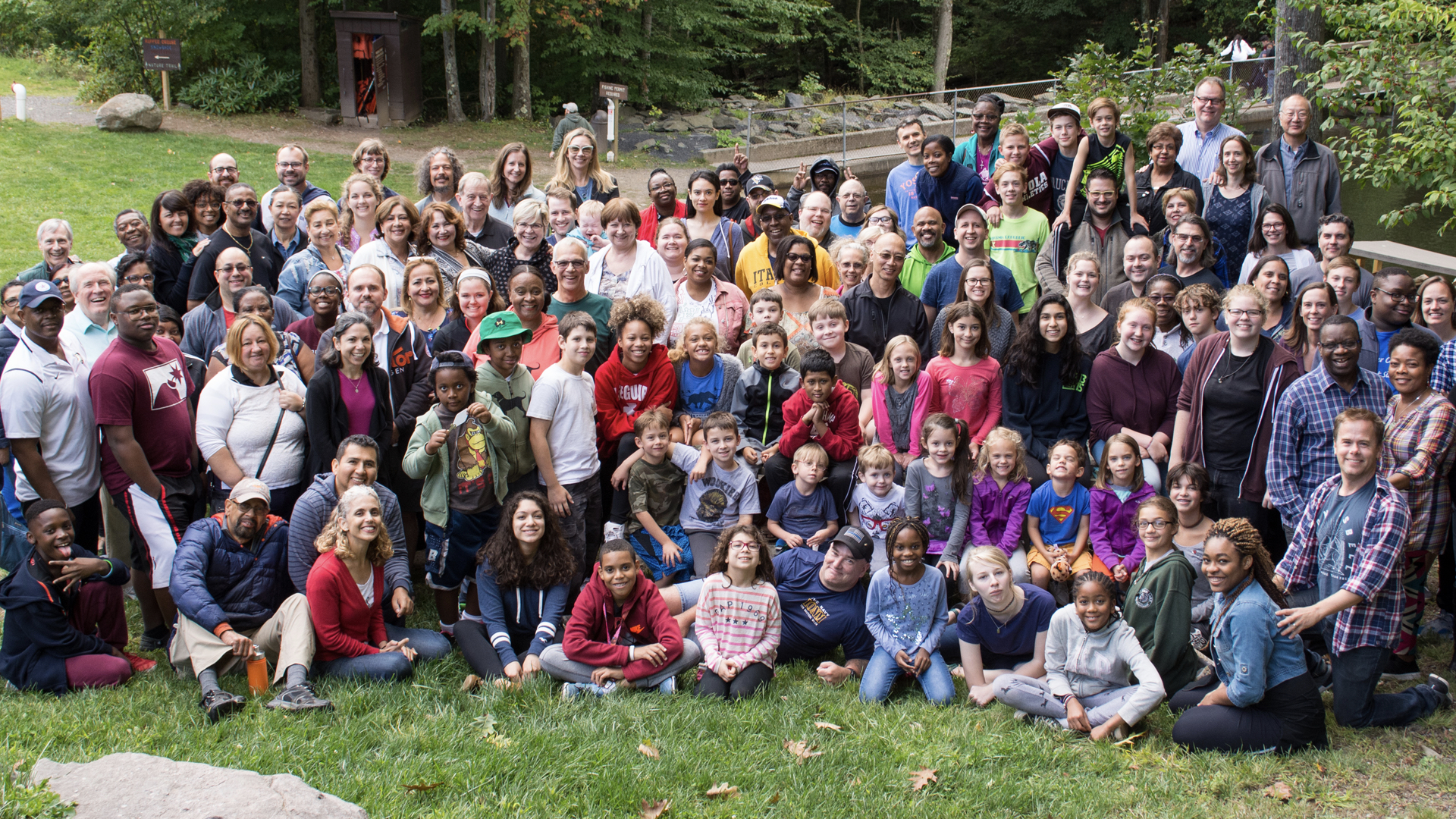The Treasure of Something More
Seeing the Reality of Life – A Life of Treasures We start the new year/decade in Jesus’ teaching in the Sermon on the Mount. Seek God’s kingdom. Jesus is talking to villagers, farmers, fishermen, women who spin and weave. Life is survival. Too vulnerable to care about abstractions, meaning. (Pyramid of motivation) Jesus goes straight for deep-high meaning. These hardscrabble people have treasures. The question: where they/we put treasures. What gives meaning/value? Where my heart is. Earth – things that pass away. God’s realm – things that can’t be destroyed. But both are here and now. It’s a challenge of vision. How do I see the world/life. My ability to see the world and people as God’s realm can become distorted, dark or give light. Jesus focuses on a difficult “choice.” Who do I serve? God or Mammon? A personification of Money, power, control, and all their embodiments in structures, relationship, stuff. Mammon’s the most powerful god we can create. Mammon is our human replica of God, the kind of god we think God should be. Pragmatic, real. Visible (not hidden). Powerful. Equipped with full theology. Daily rites to shape my choices. Able to save and destroy.
Created in Christ for Good Works
Matthew 25:31-40
God the Surprising Worker of Grace
Place side by side: “We’re God’s work of art, created in Christ Jesus for good works.” And Jesus’ portrayal of his judgment on the whole world: “I was hungry and you gave me....”
The relation of Faith to Works is often seen as a problem. What gets us to heaven? “Just believe, pray, that’s it!” or “Believe, confess, be baptized.” or Bap., Confirm., Sacraments. We seek a minimal formula. What do I have to do for God to give me salvation? Enough.
God’s work is bigger since the human problem is bigger. In Ephesians, Paul speaks to Gentiles: “You were dead....” Your sins were walking with the times, the breath/spirit breathed by everyone. Paul soon shifts to “we” – Jews like himself are included. “We were all dead...” but didn’t know it. Living out wrath of our own choices. God’s response is mercy, love.
God did all the work, what no one could imagine, creating life in Jesus for all of us: Grace. We could not have done it by anything we did! God did it! But that love and grace sets the direction of real life for us. As we share Jesus’ story, we’re newly created for works that embody that good grace and love: Loving God, loving neighbor. God is the doer, the creator. We are the creatures – with purpose. We live his love toward all around us.
Easter Sunday: First Days of a New World
Matthew 28:1-10
A New World of Life – Breaking Into the Empire of Death
Celebrating Jesus’ resurrection is rejoicing in a challenge that hits us every day and never goes away. We humans everywhere structure life around power over others in all its forms, raw violence, manipulative enticement, structures of control, financial reward.... Even our best intentions and policies must be enforced. Behind all is death’s power.
Jesus’ resurrection is the event in which God reveals that his own world/reality is creating life, not threatening death. He shows our patterns of religion, politics, life struggle, are not his eternal reality. He broke into our human empire of death with his Kingdom of life and challenges each of us to see his reality of Love, Grace, Trust. It’s there in plain sight, if we’re not blinded. But it’s hard. We are blinded by our little reality, by fear!
Palm Sunday: The Last Week of an Old World
Matthew 21:1-17
Our modern world knows when the ages turned – Galileo, Newton, Enlightenment, French Rev. Breaking ecclesiastical domination, free thought, human autonomy. Important! But that eccl. domination had domesticated and hid the great revolution, the truly new age that we celebrate: Easter when God breaks in to overcome the ultimate power of death and create new life.
Palm Sunday and all this week sets the stage. Death is still master. Hopes blossom. A long history feeds anticipation with prophetic poetry. Imperial oppression holds in boiling resentments. Aristocratic religious leaders are threatened by the very faith they’re supposed to foster. Religio-political groups propose ways of reform. The crowds long for Passover deliverance!
A young prophet from Galilee, riding a donkey, comes over the hill and sees the city and temple and weeps over it. He sees things others can’t yet see. He is someone more than they imagine.
The Adventures of Listening to Jesus
Matthew 7:21-29
Jesus’ Astounding Authority
Jesus: “Change your way of thinking, for the kingdom of heaven has come near!” (Mt 4:17) Seek God’s kingdom! You don’t create it. It’s here, real! Do you know reality to see it? The change of mind is in Jesus’ Sermon on the Mount and his signs of healing and life.
People flocked to Jesus for healing power, but felt something more – authority. “But I say to you” unfolds a vision of God, of solid life, of faith and everyday practice. Doing “the will of my Father” is the same as “listening to these words of mine and doing them.”
Mighty Works by Your Name! ... I Never Knew You!
Saints of Old & Saints Today
Matthew 5:17-24
Who’s really Great in God’s Kingdom? – a real Saint!
Jesus: “Change your way of thinking, for the kingdom of heaven has come near!” Thinking about Saint Patrick’s day. Also about the growth of faith in Jesus in Asia, Africa, etc. The distinctive forms of churches, music, organization, architecture.
Is St. Patrick a saint? In what sense? Someone canonized? Someone great in Christianity? What does that mean? The word “saints” is used in many NT translations. What does it mean? “Holy” (hagios)! Is that some special achievement in religion? Martyrdom?
Jesus and the Law and the Prophets
Many in Jesus time wanted to be God’s “holy people.” Most movements wanted to create a purified people. Especially the Pharisees with Teachers of Law, famous for rigorous obedience to Torah. They condemned Jesus’ lack of rigor – “tax collectors & sinners.”
The Quest of Love & Being Ourselves
Jesus’ Focus on Love. Enemies? Really?
Jesus: “Change your way of thinking, for the kingdom of heaven has come near!” [Mt 4:17]Central and distinctive to this change/repentance is Jesus’ emphatic teaching on love.
The climax of Jesus’ six distinctives (“You’ve heard...”) is most striking. It starts with “Love your enemies” and ends with being “perfect.” Radical repentance, counter-cultural. It assumes good human love and pushes toward something more, being God’s children.
Healing – Transforming Love
Jesus stresses healthy self-love. I want my life! 2nd command –“as yourself” [Mt 22:35-40].But he’s very realistic. Self-love often distorted. We’re masters, victims, self-hating / glorifying. 1. Assume we’re broken & need healing. 2. Value God’s work / pearls.
3. Actively ask, seek, knock. 4. God loves us as a true Father his children: Gives Life.
God becomes central–God! I love myself as God’s beloved child. Center of ethical life.
Spiritual Disciplines of Life with God
What are Spiritual Practices for anyway?
Jesus: “Change your way of thinking, for the kingdom of heaven has come near!” In the Sermon on the Mount he focuses that repentance/change of thinking. He talks about very basic challenges: anger, desire, truthfulness, enemies, anxiety, judging others, etc.
He focuses regular religious practices: alms, prayer, fasting. We often think of spiritual disciplines as a way of self-control, finding centering, peace, authentic self, etc.
Jesus always focuses on a living, vibrant dialogue with God. God who is intimate, hidden, knowing. The Abba who is life-giving creator, who is reality itself. The perennial dangers are self-centered distortion and the temptation to use piety as performance. Jesus’ concern is not my sense of authenticity, often distorted, but reality in relation to a God who knows me, who is and gives life. I save my life only by losing/giving it.
Real Prayer and Fasting and Dialogue with God
We begin this afternoon a period of Shared Prayer. Our community prayers flow from experience of personal dialogue with God. Very practical. Not new rules but focus on real relationship. Fathers in ancient world were often controlling, public-oriented. Jesus remakes “Father” as shared image for creative, intimate, challenging God.
God's Kingdom & Gaining My Life
Matthew 6:5-13
Simple Reality in a Relationship with God
Jesus: “Change your way of thinking, for the kingdom of heaven has come near!” (Mt 4:17). “Kingdom” points to God’s “Anointed king” – Messiah – Christ. A challenge to every other kingdom: Herod, Rome, myself, the world. But the kingdom is of God’s realm, “the heavens,” permeating all reality, but unrecognized. To people, “kingdom” meant power, conquest, glory, taxing. In SoM Jesus shows God’s Kgd: self-giving love, grace, generosity.
Through teaching prayer, Jesus takes us to the heart of a relationship with God – simple, real. It’s heart is the secret place, pointing to the inmost self. God’s heavenly realm is there in secret. “Your Father” is present, sees, knows, and responds. God’s glory is not for show.
But the dialogue of prayer is profound, all-encompassing! We speak our desire to change our thinking to align with God’s will: God’s Kingdom coming on our earth as in God’s heavens. The union of God’s rule with God’s creation becoming reality personally and universally.
True Generosity with a Generous God
Shaping People to Learn the Kingdom of God
Jesus challenged people: “Change your way of thinking, for the kingdom of the heavens hascome near!” (Mt 4:17). Is it a kingdom rebellion against Rome? A new way to strategize?
But Jesus didn’t gather strategists or theologians, but fishermen! Not purification in the desert but crowds in the towns. His sign was not a Zealot strike force but healing for anyone.
People set Jesus inside their own understanding of life, good, power, justice. They loved himbut .... Those closest, like Peter, affirm him as Messianic King! But when Jesus tells what “Messiah” means, “No!” – they think Jesus doesn’t understand his own greatness. (Satan!)
Jesus begins training them/us to a new, challenging way to see / think about everything, a new way to live in the world – Sermon on Mt. To “think the things of God,” to see all thingshuman as a gift from God. To love and seek God’s kingdom! God’s love at the center.
Testing - Revealing True Strength
Matthew 4:1-11
Tempting and Testing – The Coming of the Accuser
God celebrated Jesus and gave a sign of the Spirit’s presence/anointing with him at baptism. That Spirit leads Jesus into the wilderness to be put to the test/tempted (peirasmos). One word for both harsh, negative “testing” and alluring, deceptively attractive “temptation.”
Both challenge integrity, commitment, faithfulness. We experience tests and temptations as deeply personal. Here we’re given an external view, like Job 1-2. The Satan, the Accuser (diabolos, slanderer, devil) seems to appear in personal confrontation. God’s voice... Satan’s.
The narrative is stylized, simple, formulaic. It avoids taking us into Jesus’ psychology – like our inner struggles where we experience the core of testing/temptation. Paul and James focus on desire, law, human choice and weakness. Sin personified. Desires from within.
Here, we’re given a glimpse of the coming battle as Jesus “binds the strong man.” (Mt. 12:28-29) A curtain is pulled back. Jesus has fasted for 40 days. The Accuser thinks he’ll be weakened.
God's Presence as Never Before
Matthew 3:11-17
The Anticipation and Surprise of John the Baptist
In our text we hear the voice of Jesus himself for the first time in Mt. After a 30-yr gap in our knowledge, Jesus comes to John to be baptized and amazing things begin to happen.
John was a prophet like Elijah in wilderness pronouncing God’s coming judgment – especially on Pharisees (Law) and Sadducees (Temple): “brood of vipers” (3:7). He calls all to repent, be baptized to prepare “the way of the Lord” for the in-breaking Kingdom of Heaven.
John proclaims the one who will follow him: his power, worthiness. Beyond plunging in water, he will plunge you in Spirit and Fire. John’s words echo words of scripture in Mal., Isa., etc. The coming one will embody God’s judgment, sifting, gathering wheat, burning chaff. He’s ready.
Then Jesus comes. It doesn’t seem right. He should take over, not be baptized. He should show power, fire, judgment. John expects the Messiah that so many envisioned. Jesus surprises! Not by being more glorious than we expected, but by being one of the crowd of people.
How Can God Rule in My Life?
Matthew 6:19-34
A New Year – Under God’s Rule!
Epiphany – The Magi come seeking the new king. Herod urges them to seek that king so that he may ‘worship’ (kill) him. Mt wants us to think intently about Jesus as God’s Messiah, King. “God’s kingdom is arriving” – breaking in. This is God’s work. Can we participate?
New Year – We stand in the crowd listening to Jesus: “Seek first God’s kingdom, God’s rule and God’s righteousness!” Good! I want God to rule in my life. But it sounds strange.
I don’t have to seek Herod’s rule or Rome’s. They impose it. God’s kingdom comes, but it relates to me as no other kingdom. Jesus says, “Seek it.” I say, “Just tell me the rules – sacrifices, rituals, purities, things forbidden, boundaries, who’s in/out, rules of worship, rewards, punishments.” Jesus looks at the rag-tag, expectant crowd: “Sure, that’s what I’ve been doing. Love God, neighbors, enemies. No anger. No sexual dominance, Speak truth. Don’t resist evil people, but turn your cheek. Don’t show off piety. Pray simply. Give generously. Don’t judge. Give to others what you’ve been given. Don’t worry about your life!
An End and a Beginning - John the Baptist
Matthew 3:1-12
John the Baptizer and Elijah
Matthew introduces John as a known person: “Baptizer” (also Josephus). Famous as prophet and martyr killed by Herod Antipas. He is the renewal of prophecy cut short by corrupt power.
Mt illuminates his role by two scripture references. Isaiah 40: Wilderness, Exodus, hope for end of exile, renewal. Preparation for God. This is what the Gospel is about. Nothing less.
Also the sign of Elijah that ends Malachi. The call for renewal before God’s Judgment.
The surprising way that God comes. “God with us” as the exiled son. God as human Messiah.
The Surprising Birth of Emmanuel
Matthew 1:18-25
The Messiah’s Coming and a Crisis of Faith
This is the first of four Sundays of Advent: Our faith in a God who intervenes, comes into human life and experience in a totally remarkable way: incarnation to resurrection. He unites the life of God with the life of God’s creatures, us humans. He changes Human possibility by what he does and how he remains with us. Jesus is that event of intervention, Advent.
Messiah means “Anointed King”– the promise to David. Mt’s tells Jesus’ birth stressing the confrontation between the coming of God’s Messiah and Herod the “King of the Jews” established on his throne not as “son of David” but by normal power, Rome, conquest, control. We’ve reflected on his royal genealogy, but strange. God’s work, like Genesis.
God's Story: Generations of Anticipation
Matthew 1:1-17
Behold Your Anointed King – Think of the Pattern
We like to think in patterns. Generations: Lost (1880-1900), GI (1901-24), Silent/Beat (1925-44), Boomers (1945-64), Gen X (1965-84), Millennials (1985-2004), Post Millennials (2005-). Now many are absorbed with personal genealogy, genetic background, forensic genealogy.
Matthew is beginning Jesus’ story. Genealogy says something. This is a king’s list of ancestors. Few ordinary people could show such a list. Few today could without computers, databases. It is by fathers only, thus a single line, not a family tree. Thus through Joseph, not Mary.
The Honor of Jesus
In Matthew 15:1-20, Jesus confronts the Pharisees and challenges everyone around him to be people who bring their hearts in line with their words of devotion to God. Jesus wants them to be whole persons. In quoting Isaiah Jesus brings to their minds what hollow honor looks like.
In the ancient world, honor was a matter of public recognition, zero-sum transaction, and heavily bound in the face to face nature of society. If one person has honor it has been taken from someone else. And it is incumbent on the recipient of honor to have that honor recognized publicly.
In our world, we live in a “face to space” culture. That is a culture which values individualism and space. Honor is oriented bestowed upon the individual based on the values of a society built on meritocracy. The more successful the person is, according to the values of the culture, the more honor is bestowed upon them.
In speaking to some of the most religiously observant believers of God, Jesus wants to take them to a place of greater authenticity. He wants to bring their hearts, inline with their words, in the service of serving others. Jesus wants his followers to be people who are shaped by their connection and love for God, rather than formed by their adherence to the religious institutions and instructors of the day.
This Little Light of Mine
Matthew 5:13-16
What is Jesus Saying?
In talking about resurrection through the phrase, “Light of the World,” we have talked about Jesus. He says, “I am the light of the world” (Jn 8:12). He illumines ever person. God shines in our hearts to show his glory in the face of Jesus in his amazing self-giving love in Jesus’ crucifixion and resurrection. We are changed by the encounter.
Jesus brings that change to a sharp point in the Sermon on the Mount: Galilee crowds, sick and suffering, Jesus’ new disciples. He begins with Beatitudes: “Blessed are they...,” but at the end turns it to “Blessed are you...,” insulted, persecuted, slandered. What?
It’s then that he says “You are the salt...the light of the world!” Who me? I’m just one more burdened disciple, needing healing, scared of insults. But Jesus states it as fact. True?
Think of Jesus’ options for the Kingdom of God: Miraculous intervention; political takeover as messiah king, “mass communication” (J.C.Superstar) many others. Why is he on a hillside with crowds seeking help? Challenging these poor folks with the “Sermon.”


